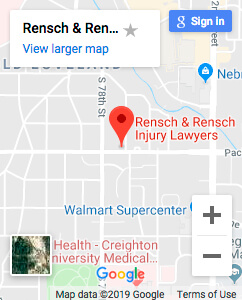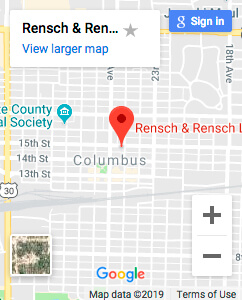Yet Another Reason Why Teenagers May Choose to Text and Drive
OMAHA, Nebraska According to Scientific American, the teen years are a time when the human brain undergoes major reorganization. Gray matter is pruned and unneeded nerve cell connections are eliminated, with the front of the brain being the last area to undergo re-organization. This is significant because the front of the brain is responsible for decision making. As the brain undergoes these changes, it also fortifies deeper connections between different parts of the brain, leading to greater brain integration. Studies are shedding light on how better brain integration in adults leads to better decision making and more strategic risk-taking. Researchers have found that teenagers’ propensity to take risks could be linked to adolescents’ inability to connect the risk-taking with the potential rewards or punishments. For example, an adult brain is able to better manage the balance and analysis of risk and reward. How does it do this? The brain uses its strong interior connections to use all parts of the brain during the decision-making process. This means that a teenager, whose brain is still undergoing changes, may not have these strong connections in place and may not have fully developed his or her frontal lobe, which is responsible for higher-order decision-making.
This could have implications for driving risks among teens. According to Time Magazine, as many as 41% of teens reported that they had texted while driving. This suggests that campaigns aimed to stop teens from texting and driving may not be having their desired effect. Shock and fear campaigns may not be enough to stop teens from engaging in dangerous driving behaviors. If teens have difficulty balancing risk and reward, they may not be doing the mental calculus necessary when they hear their phone ring while driving. Instead, parents and campaigns should work to give teens more information about the risks of texting and driving. Researchers have found that factual information can help teens more consciously rebalance their sense of risk and reward. This means that campaigns should warn teens about the risk of texting and driving, help them understand the legal and social consequences, and inform them about how texting and driving impacts their ability to focus on the road.
Texting and driving and distracted driving are incredibly dangerous. Countless people are injured each year due to these actions. Victims may suffer serious disability, may miss time from work, and may need to undergo weeks to months of rehabilitation. If teens injure another passenger or driver on the road, parents may be held financially responsible for their teens’ actions. If you have a teen, it is important to speak about the risks of texting and driving, and about road safety.
If you have been hurt due to another person’s actions on the road, you may be entitled to seek damages for your medical costs, lost wages, and pain and suffering damages. Rensch & Rensch Law are personal injury lawyers in Omaha, Nebraska who work with victims and their families to help them get the recovery they may deserve under the law. Our firm has seen firsthand how devastating texting and driving can be. Visit us at https://www.renschandrensch.com/to protect your rights.



